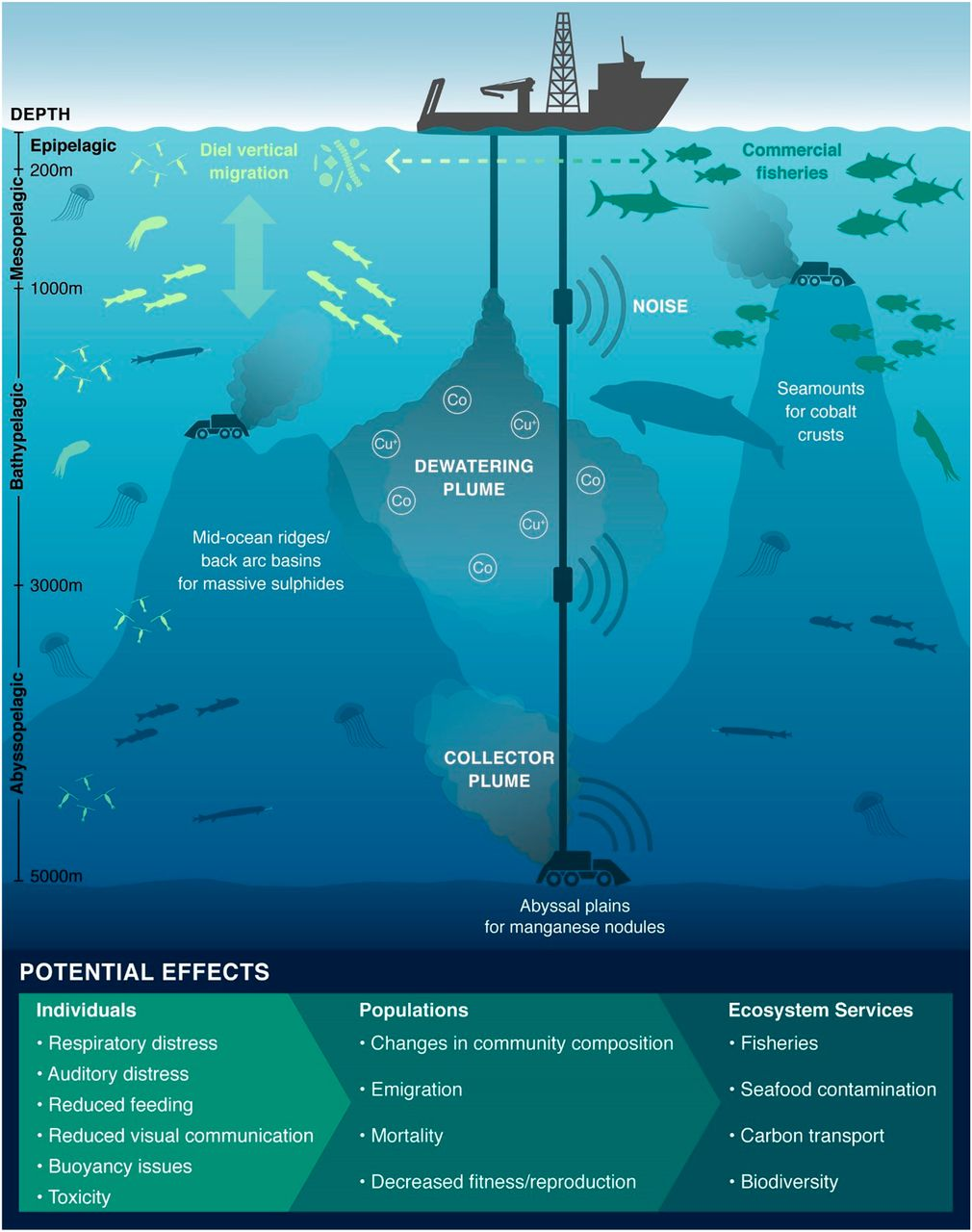Important Facts For Prelims
30th anniversary of ISA
- 01 Jul 2024
- 4 min read
Why in News?
Recently, the International Seabed Authority (ISA), an agency under the United Nations Convention on the Law of the Sea (UNCLOS), celebrated its 30th anniversary.
- It was established to oversee the exploration and utilization of non-living marine resources in international waters.
What are the Key Facts About ISA?
- About ISA:
- It is an autonomous international organisation established under the 1982 United Nations Convention on the Law of the Sea (UNCLOS) and the 1994 Agreement relating to the implementation of Part XI of the UNCLOS.
- Headquarters: Kingston, Jamaica.
- Members: 168 Member States (including India) and the European Union.
- The area under its jurisdiction covers around 54% of the total area of the world's oceans.
- ISA ensures effective protection of the marine environment from the harmful effects of deep-seabed activities.
- Mandate:
- Regulating the conduct of all exploration activities and exploitation of deep-sea minerals.
- Protection of the marine environment from harmful effects of deep seabed-related activities.
- Encourage marine scientific research.
-
India and ISA:
- On 18th January 2024, India submitted two applications for exploration in the international seabed area of the Indian Ocean.
- Polymetallic sulphides in the Indian Ocean Ridge (Carlsberg Ridge).
- Cobalt-rich ferromanganese crusts of the Afanasy-Nikitin Seamount in the Central Indian Ocean.
- Currently, India holds two contracts for exploration in the Indian Ocean.
- Polymetallic nodules and sulphides in the Central Indian Ocean Basin and Ridge.
- On 18th January 2024, India submitted two applications for exploration in the international seabed area of the Indian Ocean.
United Nations Convention on the Law of the Sea (UNCLOS)
- The ‘Law of the Sea Treaty’, formally known as the United Nations Convention on the Laws of the Sea (UNCLOS) was adopted in 1982 to establish jurisdictional limits over the ocean areas.
- The convention defines a distance of 12 nautical miles from the baseline as the Territorial Sea limit and a distance of 200 nautical miles distance as the Exclusive Economic Zone limit.
- It provides for technology and wealth transfer from developed to underdeveloped nations and requires parties to implement regulations and laws to control marine pollution.
- India became a signatory to the UNCLOS in 1982.
- UNCLOS created three new institutions:
- International Tribunal for the Law of the Sea: It is an independent judicial body established by UNCLOS to adjudicate disputes arising out of the convention.
- International Seabed Authority: It is a UN body set up to regulate the exploration and exploitation of marine non-living resources of oceans in international waters.
- Commission on the Limits of the Continental Shelf: It facilitates the implementation of the United Nations Convention on the Law of the Sea (the Convention) in respect of the establishment of the outer limits of the continental shelf beyond 200 nautical miles.
Read more: India Joins Sri Lanka in Seabed Mining Race
UPSC Civil Services Examination, Previous Year Question(PYQ)
Prelims:
Q. Consider the following statements:
- The Global Ocean Commission grants licences for seabed exploration and mining in international waters.
- India has received licences for seabed mineral exploration in international waters
- ‘Rare earth minerals’ are present on the seafloor in international waters.
Which of the statements given above are correct?
(a) 1 and 2 only
(b) 2 and 3 only
(c) 1 and 3 only
(d) 1, 2 and 3
Ans: (b)







